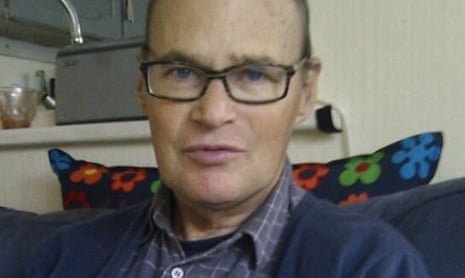My brother-in-law, David Davis, who has died aged 70, was a quiet revolutionary. In the early 1970s, working in the state prosecutor’s office in Durban, South Africa, he began to moonlight as a lawyer for the then banned ANC (African National Congress) in support of the drive to establish black trade unions in coal mines. His daytime job meant he had access to government files, which he shared with the ANC at great personal risk.
He was fired when his covert work brought him to the attention of the authorities, and placed under surveillance. His parents’ house was ransacked and he was frequently taken in for questioning. He would never talk about it, but I do not believe these were polite question and answer sessions.
Later he joined the banned Communist party of South Africa and was active in the anti-apartheid movement alongside the exiled Joe Slovo, among others. Under the South African Suppression of Communism Act 1950, he was banned from meeting more than one person at a time between 1974 until 1979. When colleagues learned the apartheid regime intended to imprison him, plans were made to help him escape South Africa. He made his way to the UK through Botswana with the help of ANC and Communist party activists along the way.
Born in Bethlehem, Free State Province, David was the son of Izlia Combrink, a secretary at a women’s magazine, and Edward Davis, an accountant with Mobil Oil. He graduated with a degree in law from University of Natal, Durban, in 1970, having earlier studied accountancy but deciding it was not for him.
In exile in London he became a prominent member of the Communist party of the UK and joined the editorial team of the Morning Star newspaper. He remained an active anti-apartheid campaigner, and once spent a day chained to the railings of the South African High Commission chatting to the actor Joanna Lumley. When he met my sister Anne, and they married in 1999 after a whirlwind romance, we often joked that she had broken Lumley’s heart.
David travelled several times to the Soviet Union to attend the Communist party congress as a representative of the Communist party of the UK. There he met the general secretary of the Communist party of the Soviet Union, Leonid Brezhnev, among other prominent members of the politburo. In 1988 he left the Morning Star for the Guardian, where he worked on the foreign desk.
He moved to Cowes on the Isle of Wight on his retirement, and became a stay-at-home dad to Beth. He returned just once to South Africa with my sister, 27 years after he had been exiled. Nelson Mandela was president and changes were visible all around. My sister recalls that he spent the entire trip asking waiters, hotel workers and railway staff about their working conditions and advising them about their rights – continuing the doctrine of permanent revolution one person at a time.
He is survived by Anne and Beth.
